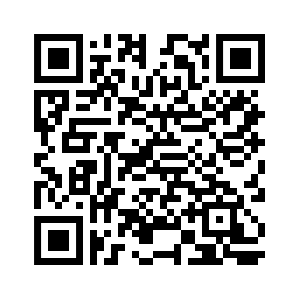Returning an Erroneous Refund or Stimulus Payment to the IRS: Updated!
Received a Stimulus Payment Check in Error? Here's How to Return the Funds to the IRS
NONRESIDENT TAX
Dahlia M. French
1/23/20254 min read
Let's talk about returning an erroneous refund to the IRS.
On December 20, 2024, the IRS announced it was issuing $1400 stimulus payments to individuals who did not receive the payment in 2021. The 2021 Stimulus Payment Notice focuses on payments to qualified individuals but does not discuss how to return a refund that was incorrectly issued.
Individuals who filed a1040-NR (nonresident) tax return in 2020 or 2021 do not qualify for the 2021 stimulus payment. If these individuals receive a payment, they must return it to the IRS immediately to avoid a later demand for reimbursement and interest charges. Individuals in F-1, J-1, M-1, and certain other visa statuses, who did not qualify for the 2021 stimulus payment are reporting that they received the $1400 (usually through direct deposit). These individuals filed a 1040-NR federal tax return. Some nonresidents have called the IRS and been assured by a customer service rep that they could keep the $1400 payment because they were in the USA in 2021.
Many believe that even if this information was wrong, they should not be penalized, because it came from an IRS employee. However, as surprising as it may seem, unless the IRS puts something in writing, any advice from the agency cannot be relied upon. There's a regulation about this:
Treasury Regulation 601.201(k)(2): Oral Advice - A taxpayer may, of course, seek oral technical assistance from a district office in the preparation of his return or report, pursuant to other established procedures. Such oral advice is advisory only and the Service is not bound to recognize it in the examination of the taxpayer's return.
The IRS has two years to begin a claim for return of an erroneous refund, so if you do not hear from the IRS in 2025, do not assume you are in the clear. Additionally, if you incorrectly filed your tax return -- based on tax preparer or IRS advice -- asking for the Stimulus Payment refund that you were not entitled to, the IRS may charge a penalty of 20% of the overpayment amount (for a $1400 payment, that’s $280) and charge interest on that penalty amount. You can read about it here: https://www.irs.gov/payments/erroneous-claim-for-refund-or-credit. If you did not file your tax return asking for the Stimulus Payment, but received the unexpected $1400 payment, you still must return the funds because you were not entitled to them, and the IRS can charge penalties and interest if the funds are not returned quickly. In short, even when the IRS created the error, the taxpayer will be penalized for it.
The IRS website offers guidance on how to return an erroneous refund, but the guidance on returning a refund issued by direct deposit is not helpful. That guidance tells the individual to contact their bank and have them reverse the direct deposit (ACH) payment. However, even though there is an ACH reversal process, banks will not do this because the request should be initiated by the sender (i.e. the IRS). The process is a bit more complicated when the taxpayer asks for ACH reversal, for a number of reasons. In fact, to date, not a single person I have spoken with said that their bank returned the ACH/direct deposit payment to the IRS. I suspect this is because banks do not want to be responsible for anyone's tax filing issues, so to avoid headaches, and the stress of making numerous calls to the IRS and bank, here is what you do:
Create an IRS Online Account: Really, everyone should have an IRS online account because all your federal tax filings and tax documents (W-2, 1042-S, 1099, 1098, etc.) are in that account. You can also make payment through the account.
Make the payment through your online account. Select "Pay Towards My Balance" and tax year "2021," (or the appropriate tax year). You're using "Pay Towards My Balance" because at some point, the IRS will catch the stimulus payment error and flag your 2021 tax return as having a balance due.
Explain the Payment: If the system has space to do so -- it doesn't now but it may in the future - add a note that it is for "Return of 2021 Stimulus Payment Issued in Error to 1040-NR Filer." That detail is enough to explain why you are making the payment. With the online account, you will also have evidence of the payment without having to keep paper records.
Call the IRS: If you cannot add the "Return of 2021 Stimulus Payment..." information, call the IRS at 1-800-829-1040 and ask the customer service representative to add a comment to your tax record showing that you return the $1400 overpayment. Also tell the agent that the bank refused to cancel the ACH/direct deposit payment.
Returning Paper Checks to IRS: You can also return the overpayment by personal check or money order, but that method may result in the IRS assessing a penalty and interest if it is returned more than 21 days after you receive it. The IRS’ instructions for returning a paper check are more accurate. The information is in IRS Topic 161. That page links to the return address information for Form 3911 Return Addresses. Form 3911 is used to report lost refund checks, so don’t be confused. You should not complete Form 3911; you are only using the return address information on that page. The return address is based on your state of residence, so be sure to use the correct address.
You are free to share this information, but please also share my link so my authorship is noted. (Plagiarism is messy).
Take care of yourself, and your taxes, 😊
Dahlia
----------------------------------------------
Nonresident Taxation Services: French Legal, PLLC offers nonresident tax services, especially for those in the academic community. Feel free to schedule an appointment at https://outlook.office365.com/book/FrenchLegalAppt@frenchlegal.net/. Also, please use our "Contact Us" form to share your suggestions for helpful immigration or nonresident taxation topics.
IRS Circular 230 Notice: To ensure compliance with requirements imposed by the IRS, we inform you that any U.S. tax advice contained in this communication (or in any attachment) is not intended or written to be used, and cannot be used, for the purpose of (i) avoiding penalties under the Internal Revenue Code or (ii) promoting, marketing or recommending to another party any transaction or matter addressed in this communication (or in any attachment).
Quick Links
Locations
Our offices are in Texas; our clients are all over the world!
General Information: info@frenchlegal.net
Accounting/Billing: accounting@frenchlegal.net
Lubbock, TX
5915 86th Street
Lubbock, TX, 79424
Houston, TX
500 Crawford Street, #529
Houston TX, 77002
Phone/Text/WhatsApp: (615) 251-8111


